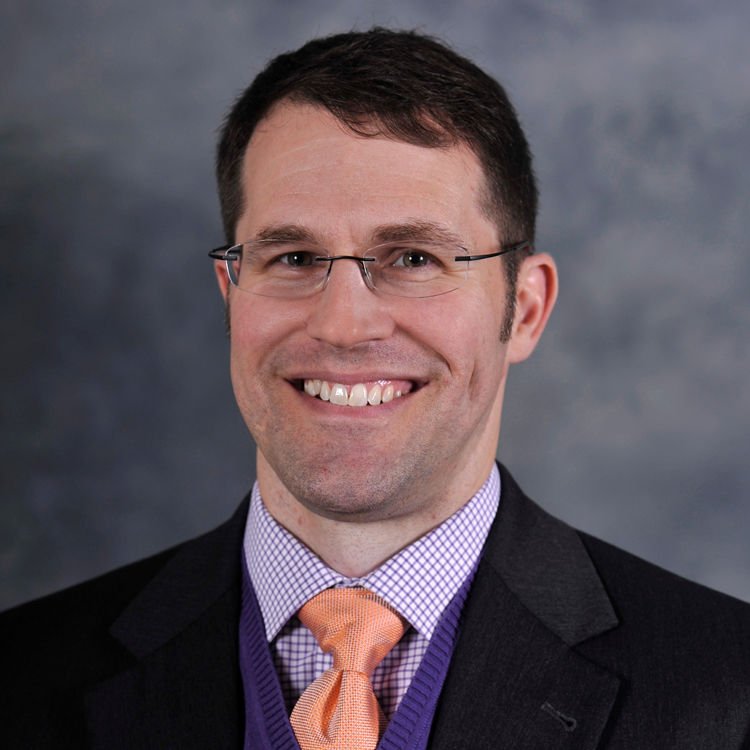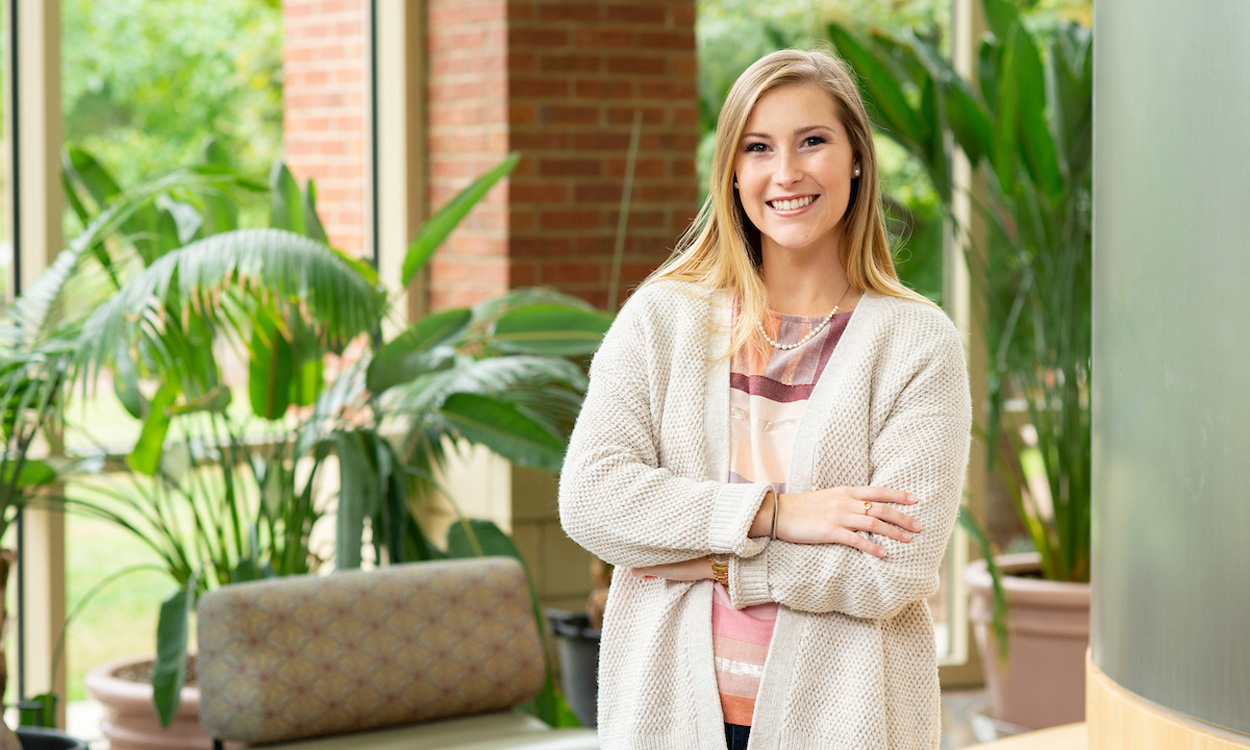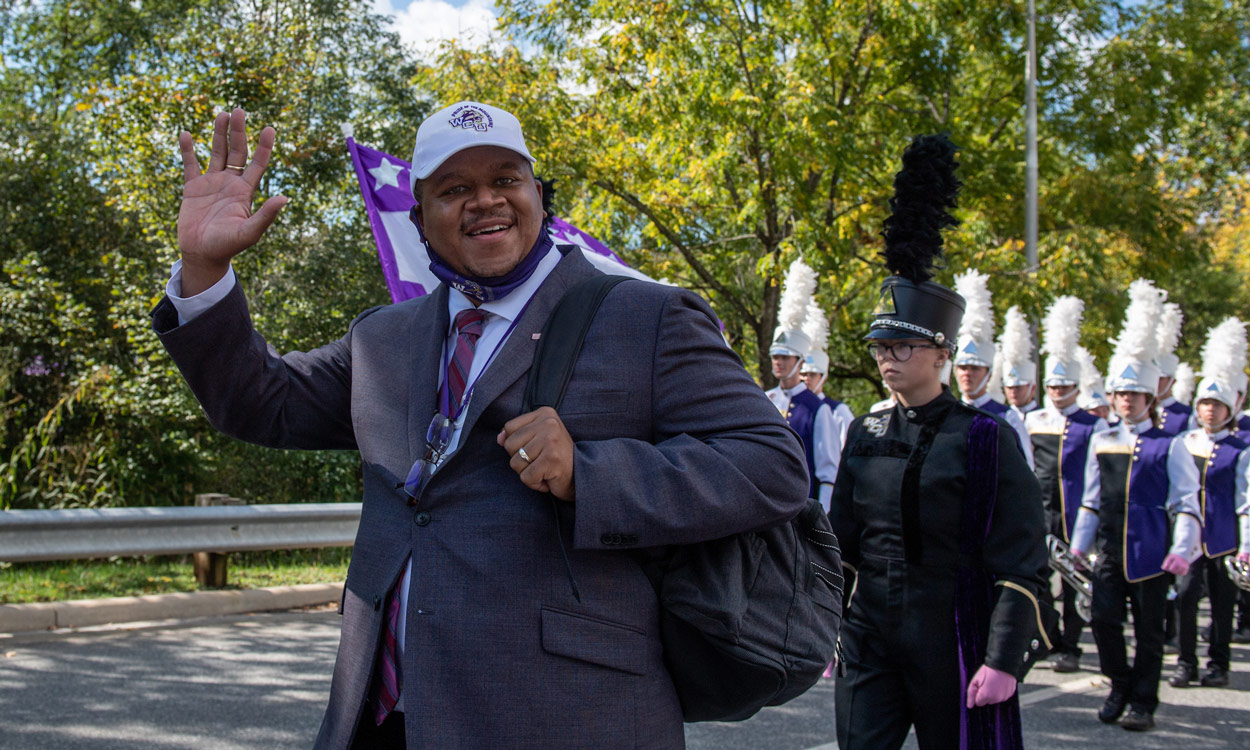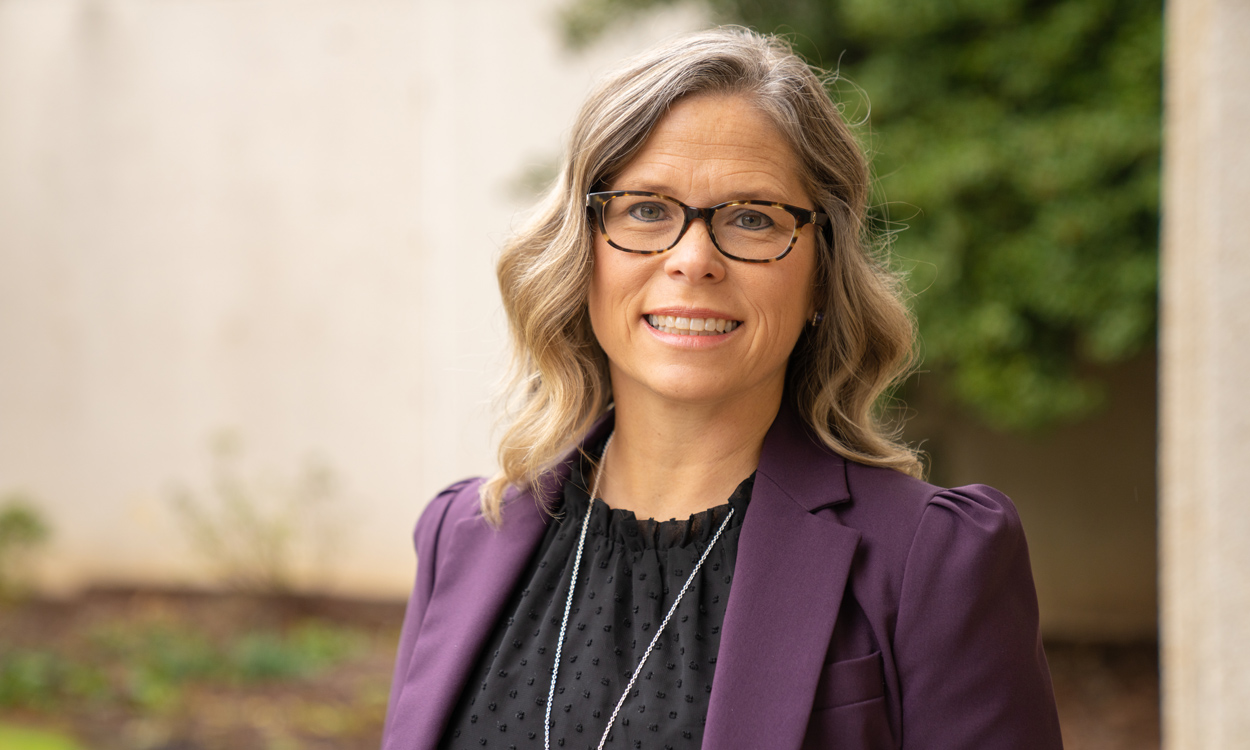Free enterprise center has new director, new focus on undergraduate research
By Bill Studenc
Western Carolina University’s Center for the Study of Free Enterprise, founded in 2015 as a hub for interdisciplinary scholarly inquiry and community engagement in the areas of economic development, applied research and the role of free enterprise in a flourishing society, is in the early phases of a metamorphosis with a new director and a focus on undergraduate student research.
Sean Mulholland, professor of economics at WCU and former associate director of the Center for the Study of Free Enterprise, stepped into the role of director of the center on Aug. 15. Mulholland succeeds the center’s founding director, Edward Lopez, who holds WCU’s BB&T Distinguished Professorship in Capitalism and who successfully acquired $1.8 million from the Charles Koch Foundation in 2016 as seed funding.
That initial funding, which came to the university over a five-year period, enabled the center to produce reports on economic development topics, host guest speakers, facilitate seminars and town halls, and support faculty and student research. However, not much of the initial funding remains.
“I have inherited a center with no funding stream, but the skeletal structure still remains,” Mulholland said. “These bones are strong, however, and we are in the process of finding new sources of funding to enable us to continue the work of the center with a narrow focus on undergraduate engagement and research.”

Sean Mulholland
Mulholland already has obtained a $30,000 from the North Carolina-based Barnes Family Foundation, and has made another proposal to the Koch Foundation to support undergraduate research activities by providing funding to the students who are conducting the undergraduate research and to the faculty members who are mentoring them.
The center’s narrower emphasis on student research is designed to help undergraduate students develop the skills in designing research projects that are critical to those wanting to go to graduate school while also working on problems facing the Western North Carolina region, the state and beyond, Mulholland said.
“One of the things about students in the College of Business at Western is that they believe that their main priority is to gain knowledge and absorb information. There tends to be less focus on creating new knowledge or of academic entrepreneurship. In the arts, we often see this culture of creativity. I would like to encourage a culture of creativity and curiosity. I want students to investigate the questions they have. I want them to become scholars.” he said.
“Can we use this center to help find a way to create a spark, to nurture and support the students who want to follow their inner 3-year-old by always asking, ‘But why? Why? Why?’” Mulholland said.
The change in leadership and focus for the Center for the Study of Free Enterprise comes as the College of Business kicks off a newly approved degree program in economic analysis. The University of North Carolina Board of Governors approved the degree as part of its meeting April 7 on the WCU campus.
A.J. Grube, dean of the College of Business, expressed her appreciation to Mulholland for stepping up to lead the center at a critical time in its history.
“We’re so fortunate to have Sean Mulholland directing the center,” Grube said. “His enthusiasm and fresh perspectives will serve our students well. I’m excited to work with him and I can’t wait to see what he accomplishes as the center enters its next chapter.”
Among the center’s upcoming activities is the establishment of a new weekend seminar series titled “Exploring Liberty,” with the first event scheduled for Feb. 3-4, 2023.
“We will be bringing in a broad spectrum of disciplines – economists, political scientists, philosophers, social scientists and business professionals – and start talking about why we see such disparities across individuals in terms of income, life experiences and access, and think about what we can to reduce those disparities,” Mulholland said.
Next fall, the economics program will launch “Liberty Over Lunch,” a special topics course that will meet on Fridays from noon until 3 p.m.
“Students will read one or two articles in advance of each class session, the center will bring the author or researcher in, we’ll eat lunch and talk about the research,” Mulholland said. “These are not going to be ‘fancy scholars’ from Ivy League institutions. These are going to be people who came from humble backgrounds in small towns and who studied at regional colleges or universities and went on to become scholars and researchers.”
The goal, he said, is to help students realize they also can go on to earn advanced degrees and become scholars and researchers in their own right.
“The way to get into graduate school, especially in the field of economics, is to do well in economics and math classes, get a good score on the GRE and show a track record of research. Can you design a research project? Can you ask a question and formalize a strategy to answer that question? Can you compare multiple models or find the data to begin to peel back the layers and get to the bottom of a question or a problem?”

Ally Thompson
Mulholland is hoping to build upon recent student research projects conducted under his mentorship. Adam Mottershead, a natural resource management major who is interested in natural resource economics, began investigating water use in North Carolina to determine if the state is drawing more water than is being replenished by natural rainfall. A possible outcome of the research is a water permitting process, Mulholland said. Mottershead’s paper on the project was published in Issues in Political Economy.
Former student Ally (Bevers) Thompson, now a full-time financial analyst with Chase Logistics, has conducted research that looks at the relationship between test-optional college admissions and student debt, finding that when institutions switched from requiring test results to making them optional, students tended to graduate with more debt. She and Mulholland have submitted the paper about her research to a national journal.
And student Libby Weitkamp is exploring the possible relationship between yoga, which is not a heavily regulated industry, and falls among older adults.
“I am excited to see what future undergraduate research projects will be coming though the center in the years to come,” Mulholland said.
For more information about the Center for the Study of Free Enterprise, visit https://affiliate.wcu.edu/csfe/.

